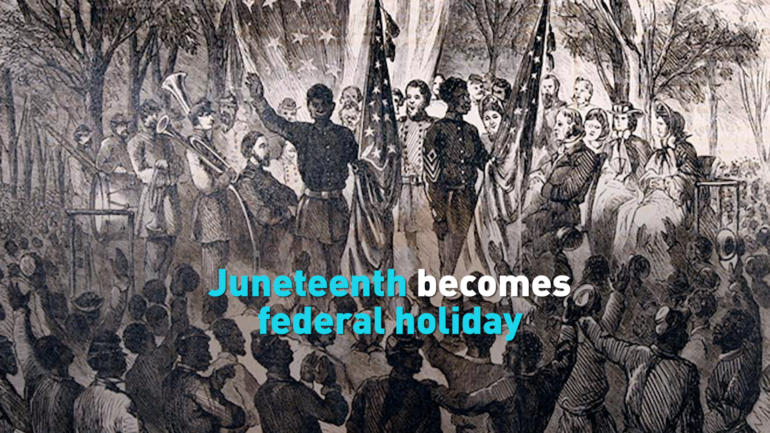June 19, 1865 marks a crucial day in U.S. history. It was the day that the enslaved people in Galveston, Texas learned that they were freed, two years after President Abraham Lincoln signed the Emancipation Proclamation, which freed the enslaved in the South in 1863.
The following year, the now freed people started celebrating the day, which would be known as Juneteenth. For centuries, the day was observed by the Black community with concerts, parades, educational events, and readings of the Emancipation Proclamation.
On Thursday, U.S. President Joe Biden officially signed the bill that made Juneteenth a recognized federal holiday, the first new holiday since the 1980s. It takes effect immediately.
The day was a monumental occasion in Washington, D.C., and many are hoping that the news will continue to spark conversations around African American history and race relations.
Imani Cheers Associate Professor of Media and Public Affairs at George Washington University discusses the history of the holiday, what it means for the Black community, and where the country goes from here, following the racial reckonings of 2020.
 CGTN America
CGTN America

